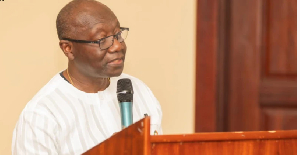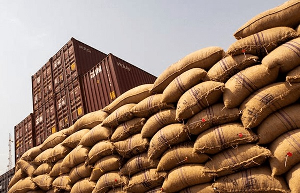Tarkwa (W/R), Nov 7, GNA- Mr Edward Martey Akita, Minister of State in-charge of fisheries has repeated the government's determination to remove problems that had confronted the effective promotion of aquaculture to boost fish production in the country.
He mentioned lack of easy access to credits to potential fish farmers, high cost of pond construction, slow transfer of technology and inadequate supply of fingerlings as some of the problems facing the industry and being tackled vigorously by the government.
The Minister was speaking at the launch of fish farming project at Tarkwa.
Mr. Akita said there is an on-going programme to train interested youth and individual fish farmers in fishpond construction and added that mechanisation services are also being introduced into the sector.
"Crawler-dozers are being hired to individual members of the Ashanti Fish Farmers Association to enable them to construct bigger ponds or expand existing ones", the Minister said.
Mr. Akita said efforts to revamp the fisheries sector would be sustained to enable the country to produce the bulk of the 800,000 metric tons fish requirement per a year within the next few years. He expressed the government's gratitude to the Food and Agricultural Organisation (FAO) for its immense support to boost agriculture and fish farming in particular.
Mr. Anatolio Ndong Mba, FAO representative in Ghana said the project among others would help to strengthen the organisational capacity of fish farmers as part of the programme to boost aqua culture in the country.
He commended fish farming groups at Dunkwa-on-Offin, Tarkwa and Sefwi-Wiawso where the ministry has started pilot projects for their hard work and urged them to expand their projects to increase fish production.
Osagyefo Kwamena Enimnil the VI, Omanhene of Wassa-Fiase Traditional Area who presided, called on chiefs to encourage the youth to go into fish production as a means of livelihood.
Business News of Friday, 7 November 2003
Source: GNA












